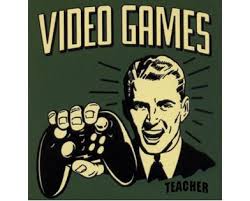Video Games and Education
More and more teachers are discovering new ways of keeping their students’ attention focused on the classroom and the class in session. One way which has proven itself worthy of mention is the use of video games.
Video Games and Education – The Future?
Of course, video games in the classroom have the potential to be a powerful learning tool. Games were used for teaching and educating purposes probably since the dawn of Man. Video games, however, posed an interesting situation. On the one hand, games are an effective way of approaching education in most cases. On the other hand, this is video we are talking about, and that has different criteria and consequences.
When used in a hands-on, creative and safe classroom environment – video games can add a lot to an otherwise dull session of teaching. Along with instruction and guidance from a teacher, video game classrooms can be a viable method of passing down information, encouraging critical thinking, improving motor skills, and engaging the students both as a class and as individuals simultaneously.

Some educators believe video games are the future of education due to their interactive nature.
Studies on education and video games have been conducted since the 1970’s, and with the birth of advanced gaming consoles and the World Wide Web in the 1990’s, questions regarding its legitimacy and place in a student’s life began to stream in a constant, nonstop parade.
The naysayers point their finger towards incidents like the Columbine shooting, citing its alleged link to video games like Doom and Wolfenstein 3D. There is no doubt that in the wrong hands, video games can be a very disturbing thing. However, is that enough to condemn the entire notion of classroom gamification?
Experts have still not found enough evidence to support the claim that video games are linked to the negative attributes associated with them. This is an ongoing debate which has even reached the floors of the US congress.
In my experience – it isn’t at all about the game, but rather about the person playing the game. Nothing will ever fully replace a textbook, an encyclopedia, or a qualified teacher. However, video – and that includes video games – is a big part of the future of education.
Much like the chalk and board that have been replaced by projectors, laptop computers, and power point presentations – we will find that video is one of the best ways to send and receive the information we want to spread. It’s all a question of how we approach it, and of the amount of reliability we attribute to such tools and methods.
No comments yet.